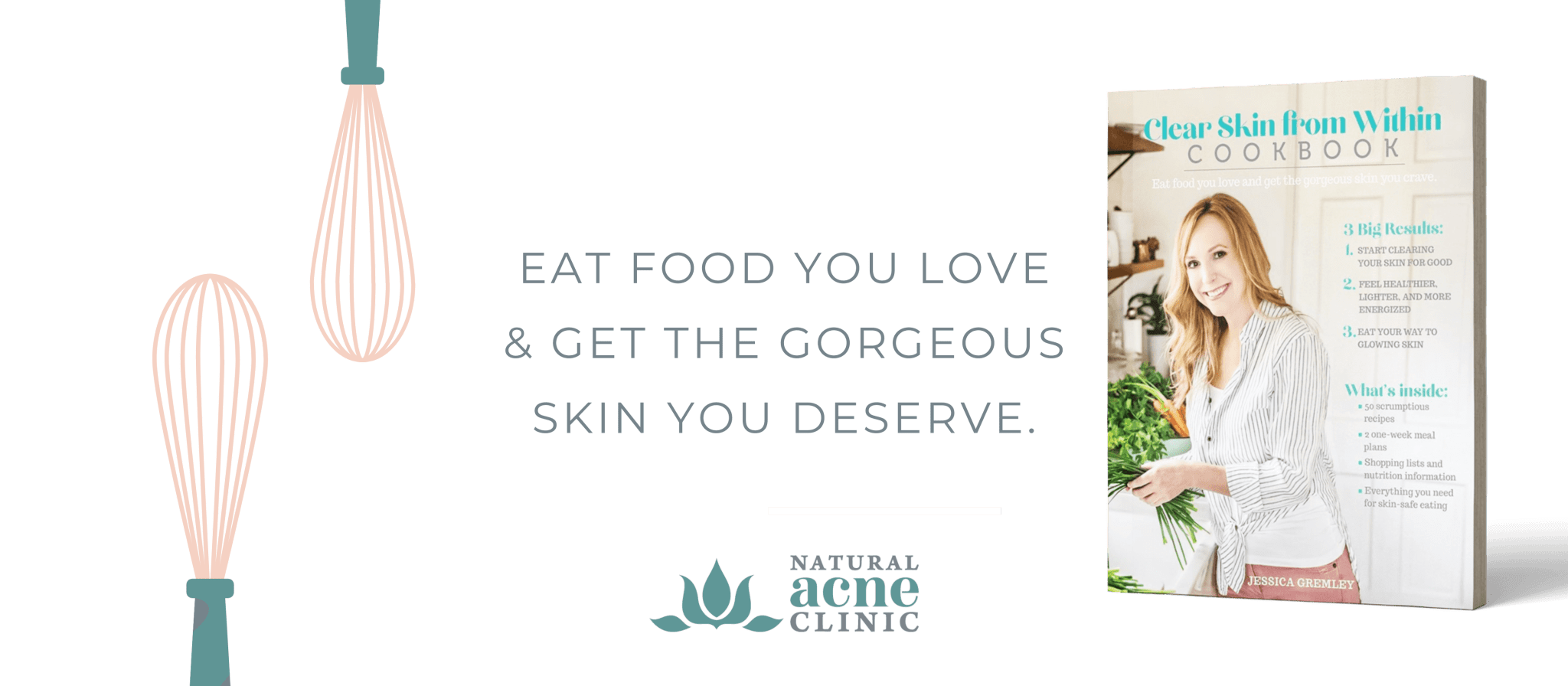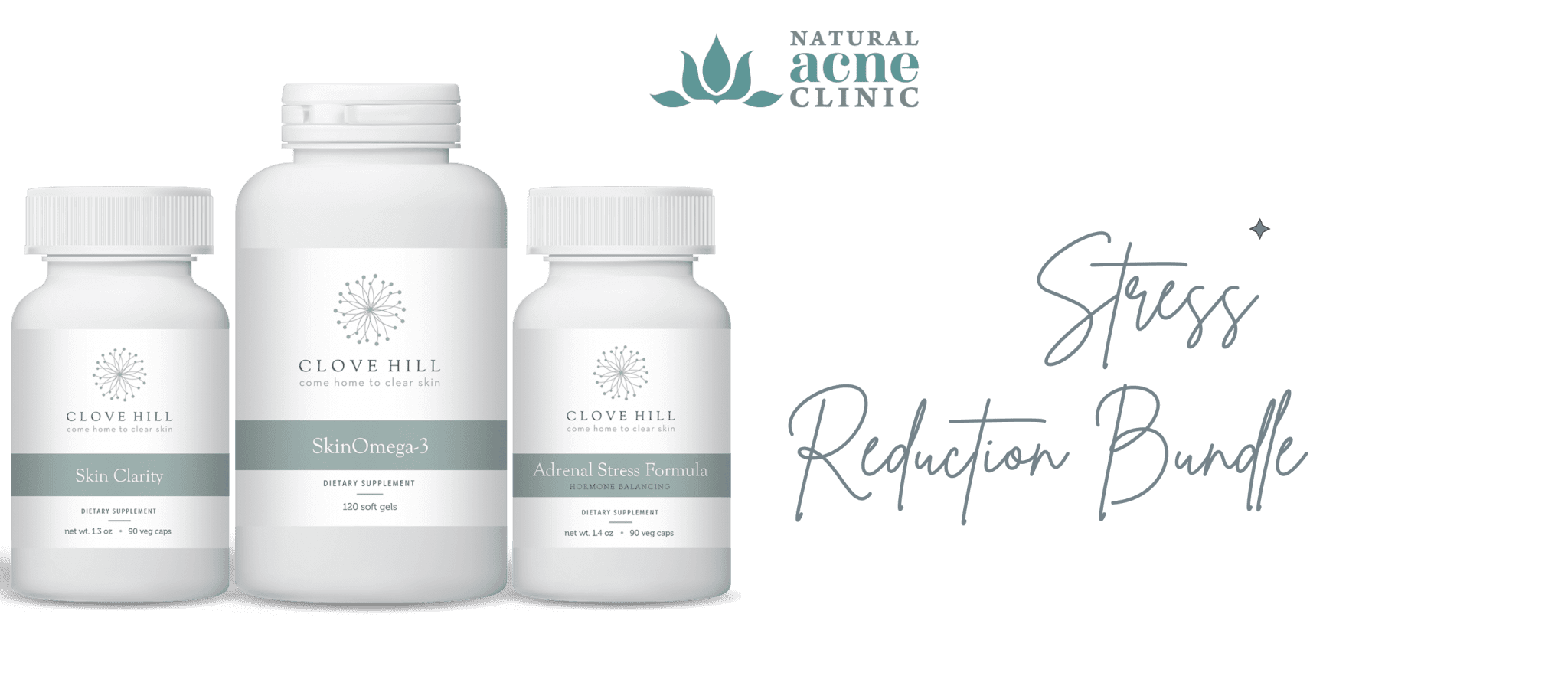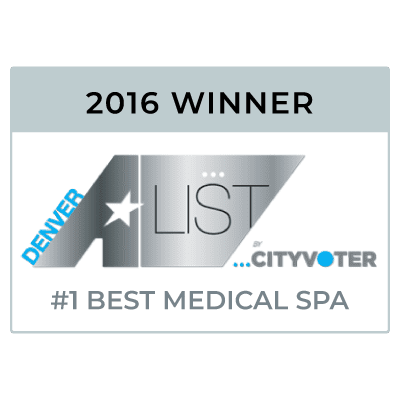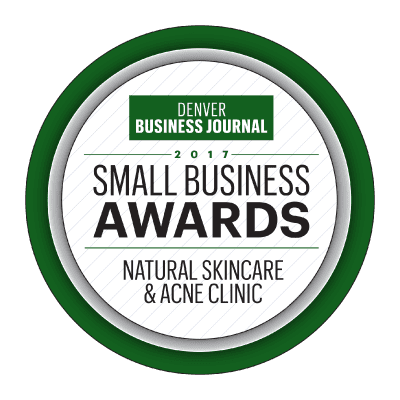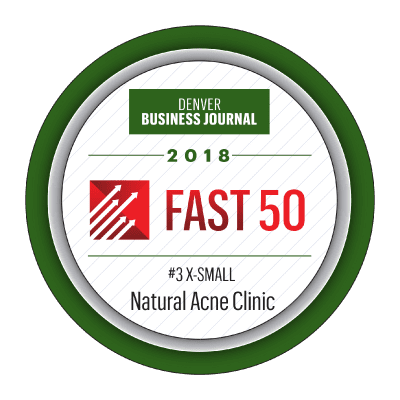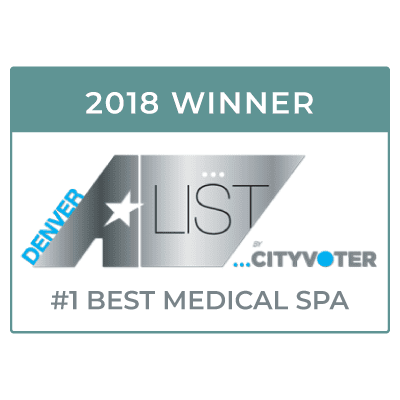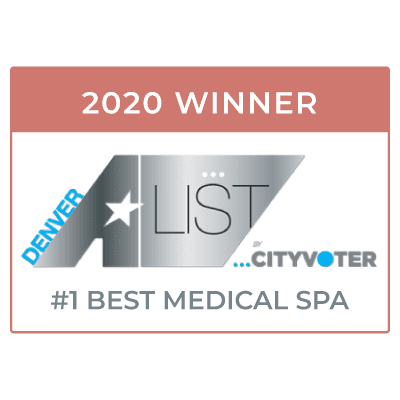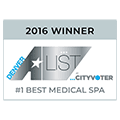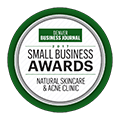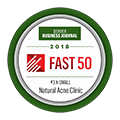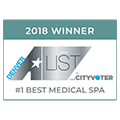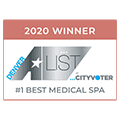Choosing the best treatment for acne, especially for sensitive skin, can be tricky. Traditional options like topical medications and benzoyl peroxide can be very effective but may irritate your skin.
Ultimately, the 'best' treatment is a personal choice tailored to your needs and preferences. This treatment includes adult acne treatment, which requires a specific understanding of the skin’s maturity and the unique challenges this age group faces.
Do you know YOUR primary acne cause? Still struggling with an unsure self-diagnosis?
We created a short quiz to help you Discover YOUR Acne Cause
It's crucial to acknowledge that treatments may react differently across individuals, and certain ones could introduce side effects or carry potential risks. Choosing the right action can be even more challenging, especially for acne-prone sensitive skin.
Traditional medications may be too harsh, causing irritation and redness. This highlights the importance of consulting our Clear Skin Specialists to navigate the options, including acne treatment for sensitive skin, and craft a treatment plan that balances effectiveness with minimizing irritation for your unique needs.
This blog will navigate through traditional acne treatment and holistic acne treatment. Traditional Methodologies encompass the utilization of pharmaceutically derived substances or drugs to mitigate acne symptoms. Conversely, Holistic Acne Treatment embraces natural or alternative remedies focusing on the underlying contributors of acne, such as dietary habits, lifestyle routines, or stress levels.
We aim to unearth the advantages and disadvantages tied to each approach, assisting you in pinpointing the treatment most compatible with your needs.
1. Understanding Traditional Acne Treatments
Exploring traditional acne treatment means looking at treatments that employ chemicals or drugs to combat acne symptoms. These methods fall into three primary categories: topical medications, oral medications, and therapeutic procedures, each offering distinct advantages and challenges.
However, finding the best acne treatment for sensitive skin requires careful consideration of the individual's skin type and sensitivity, ensuring that the selected method does not aggravate the condition.
1. Topical Medications
Topical medications are applied directly to the skin's surface and come in various forms, including creams, gels, lotions, and patches. Their main functions are eradicating acne-causing bacteria, diminishing inflammation and redness, and preventing pore blockages. For those seeking acne treatment for sensitive skin, choosing formulations less likely to irritate while still being effective is vital. Common topical treatments include:
- Benzoyl peroxide: Known for its antibacterial and anti-inflammatory properties, benzoyl peroxide is effective against mild to moderate acne. It also removes dead skin cells and excess oil but may lead to dryness, irritation, and bleaching of hair and fabrics.
- Salicylic acid: This beta-hydroxy acid exfoliates the skin and unclogs pores, reducing swelling and redness of acne lesions. However, it might cause skin dryness, stinging, and peeling.
- Retinoids: Vitamin A derivatives that promote cell turnover and prevent clogged pores. Retinoids also aid in fading acne scars and enhancing skin texture, though they can cause dryness, irritation, and increased sun sensitivity.
- Antibiotics: Used primarily to kill acne-causing bacteria and reduce inflammation, antibiotics are often combined with other treatments like benzoyl peroxide or retinoids. They may cause skin irritation, allergic reactions, and bacterial resistance.
Finding the best acne treatment for sensitive skin can be a process of trial and error. It is crucial to consult a Clear Skin Expert to determine the most suitable formulation and strength for your individual needs.
2. Oral Medications
Oral medications are ingested and work internally to target acne-causing factors related to hormones, the immune system, or inflammation. Among the most prescribed oral treatments are hormonal contraceptives and hormonal acne treatment options which specifically address imbalances and are often crucial in managing breakouts related to fluctuations in hormonal levels.
- Hormonal approach: Birth control pills that regulate hormones responsible for acne, helping to diminish oil production, inflammation, and bacterial growth. Side effects can include weight gain, mood shifts, nausea, and blood clots.
- Isotretinoin: A potent retinoid for severe, treatment-resistant acne, isotretinoin decreases oil gland size, reduces inflammation, and helps prevent scarring. Its serious side effects encompass dryness, depression, congenital disabilities, and liver damage.
- Spironolactone: A diuretic that blocks androgen receptors to reduce oil production and hormonal acne while potentially lowering blood pressure and fluid retention. Possible side effects are dizziness, fatigue, menstrual irregularities, and breast tenderness.
- Anti-inflammatory drugs: They reduce inflammation and pain associated with acne and can be used short or long-term, depending on the severity of the acne. Side effects may include stomach ulcers, bleeding, and kidney damage.
3. Therapeutic Procedures
Skincare specialists perform physical or mechanical techniques to treat acne, improving acne appearance and healing. Common procedures include:
- Chemical peels: Solutions are applied and then peeled off to remove the skin's top layer and dead cells. This helps to unclog pores, diminish scars, and enhance skin tone, though it may cause irritation, redness, and peeling.
- Microdermabrasion: A technique involving a device that sprays tiny crystals or has a diamond tip to gently sand the skin, removing dead cells, smoothing the skin, reducing scars, and stimulating collagen. It may lead to irritation, redness, and sun sensitivity.
- Laser therapy: Light beams targeted at acne lesions and scars to kill bacteria, reduce inflammation, and promote healing, but can result in pain, swelling, blistering, and scarring.
- Photodynamic therapy combines a topical photosensitizer with a light source to activate it, destroying bacteria, reducing oil production, and shrinking pores. Potential side effects include pain, burning, crusting, and light sensitivity.
We have an in-person clinic for those in Colorado seeking a personalized approach to acne treatment. If you are in Colorado, visit the Natural Skincare Clinic to discover various treatment options, tailored to address your specific concerns and achieve clear, healthy skin.
2. Exploring Holistic Programs for Acne
Discover the power of holistic acne treatment programs, which emphasize natural or alternative strategies to tackle the underlying causes of acne, such as diet, lifestyle, or stress. These programs offer a complementary or alternative solution to conventional acne treatments tailored to your preferences and needs.
Embracing holistic programs for acne offers numerous benefits, including enhanced overall health and wellness, minimized side effects and risks associated with chemicals or drugs, and a long-term prevention strategy for acne recurrence. One challenge is that they demand more time, patience, and dedication to witness results.
Explore some key elements of holistic acne treatment programs you can implement from the comfort of your home.
1. Dietary Changes and Nutrition
The correlation between diet and acne is undeniable. Certain foods can exacerbate acne by promoting inflammation, increasing oil production, or creating hormonal imbalances.
Avoiding acne triggers like dairy, iodine, refined carbohydrates, processed foods, and alcohol may help, while incorporating anti-inflammatory and detoxifying foods such as fruits, vegetables, whole grains, nuts, seeds, and healthy fats can support skin health.
Embracing a well-balanced, anti-inflammatory diet tailored to your personal needs and sensitivities, along with supplementing with nutrients beneficial for the skin such as zinc, vitamin A, vitamin C, vitamin E, omega-3 fatty acids, probiotics, or turmeric, can be transformative.
To help you get started, we recommend our comprehensive Clear Skin from Within Cookbook. Packed with delicious, acne-fighting recipes and expert advice on creating a personalized meal plan, it empowers you to take control of your skin health from the inside out.
2. Stress Reduction Techniques
Stress is a known aggravator of acne. It stimulates cortisol production, leading to increased oil production, inflammation, and blood sugar levels—all of which contribute to acne. Stress also weakens the immune system, disturbs sleep, and negatively impacts mood, further affecting skin health.
To manage stress, incorporate practices like meditation, yoga, and breathing exercises into your daily routine. Aromatherapy and massage can also help alleviate stress. Seeking counseling offers professional support to address underlying issues. By consistently applying these techniques, you can lower cortisol levels, improve blood circulation, and relax your muscles, all of which contribute to better overall well-being. For more information on recognizing stress breakouts and managing them effectively, check out our blog on Key Signs of Stress Breakouts.
Feeling overwhelmed by stress? Our Stress Reduction Bundle offers a targeted approach to fight acne from the inside out; click to learn more!
3. Natural Topical Treatments
Opt for natural topical treatments that utilize pure ingredients to combat acne from the outside. These alternatives or supplements to conventional treatments are typically gentler, more affordable, and environmentally friendly, yet may vary in effectiveness and lack extensive scientific validation.
Remedies such as apple cider vinegar, ice, green tea, honey, tea tree oil, aloe vera, or clay masks have proven beneficial in combatting acne-causing bacteria, reducing inflammation, decongesting pores, and healing scars.
It’s crucial to perform a patch test before trying new products and adhere to application instructions to prevent skin irritation or allergic reactions.
conclusıon
Acne, a complex and multifaceted skin issue, affects outward appearance and profoundly impacts self-esteem and overall quality of life. Offering a spectrum of solutions, from traditional to holistic treatments, this condition requires a personalized approach to enhance skin health and personal well-being effectively. It's important to recognize that there is no universal remedy for acne, with the optimal strategy varying according to individual needs, preferences, and aspirations.
We delved into various acne treatments' efficacy, safety, and sustainability throughout this discourse, drawing on current evidence. Additionally, we've shared insights on selecting and leveraging these solutions for maximum benefit.
Nonetheless, we strongly advocate for professional consultation with a board-certified skincare expert before embarking on any new treatment regimen. Adhering to expert guidance is crucial for safe and effective outcomes.
We have aimed to enlighten you about the diverse methodologies for managing acne, hopefully boosting your confidence and motivation to pursue the most suitable course of action. Understand that acne occurrence is beyond your control and that you deserve to enjoy clear, radian skin.
DISCOVER HOW YOU CAN GET CLEAR OF YOUR ACNE.
SCHEDULE A FREE 15-MINUTE CLEAR SKIN DISCOVERY SESSION
